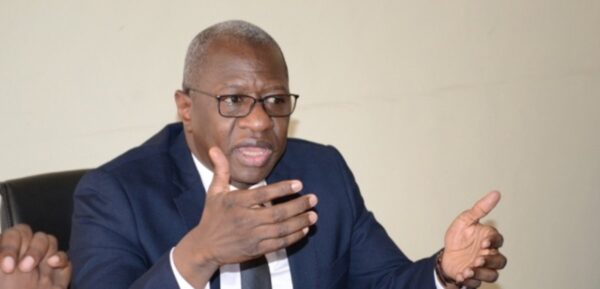By Mamadou Ismaïla KONATÉ
Lawyer at the Court – Bars of Mali and Paris
Former Minister of Justice
This text complements and updates the previous analysis dedicated to CMA-CGM’s decision. It takes into account the position announced on November 6, 2025 by MSC Mediterranean Shipping Company, which suspended its transport services to and from Mali. This development confirms the seriousness of the country’s logistical and economic challenges and highlights the urgent need for a coordinated response between public and private actors to ensure the continuity of trade.
I. A double alert for a landlocked country
On November 4, 2025, CMA-CGM announced the temporary suspension of its intermodal services to Mali, citing security risks and fuel shortages. Two days later, on November 6, MSC Mediterranean Shipping Company, based in Geneva, followed suit by suspending all services to and from Mali. These two successive announcements, affecting the corridors of Abidjan, Dakar, Tema, Lomé, and Conakry, have caused a major logistical shock. For a country where more than 90% of external trade depends on these routes, the situation reveals a deep structural vulnerability, exacerbated by regional insecurity and dependence on foreign operators.
II. CMA-CGM chooses the path of dialogue
Alerted by the seriousness of the situation, Malian authorities, through the Ministry of Transport and Infrastructure, organized a consultation with CMA-CGM on November 6. Following this meeting, the French group decided to maintain its activities to Mali, including land transport, despite difficult conditions and rising costs. This decision reflects a willingness to cooperate and take economic responsibility. Instead of invoking force majeure, CMA-CGM preferred to take on a controlled risk to preserve logistical continuity and support Malian trade.
III. MSC confirms the suspension of its services
On November 6, 2025, MSC issued an official statement from Geneva announcing the temporary suspension of all its operations to and from Mali until further notice. The group cites “major operational challenges” related to convoy security and fuel scarcity, making land transport unsustainable in the short term. Clients are offered three contractual alternatives: delivery to the unloading port, temporary storage on land or on board, or keeping the cargo until operations resume. Unlike CMA-CGM, MSC opted for strict caution, giving the crisis an international and structural dimension.
IV. Economic implications: a chain reaction
The economic consequences are immediate and severe: several hundred containers are immobilized in the terminals of Dakar, Abidjan, and Conakry; delivery times to Bamako have increased from 7 to 15 days; transport costs have risen by 25 to 40%. The prices of imported products – fuels, foodstuffs, construction materials, and medicines – have seen a significant increase. Transport companies face contractual breaches, freight forwarders accumulate financial losses, and customs and port revenues decrease significantly. This logistical shock triggers a domino effect: scarcity of goods, widespread inflation, and a decrease in purchasing power. In the short term, it represents a major economic risk to the country’s stability.
V. Legal analysis: force majeure in action
Legally, both shipping companies invoked the force majeure clause in their Bills of Lading, allowing them to temporarily suspend their obligations. CMA-CGM lifted this clause after dialogue with Malian authorities, while MSC maintains it, considering that the security and supply conditions do not allow for a safe execution of the contracts. This difference reflects two interpretations of the law: one cooperative and pragmatic, the other cautious and conservative. In both cases, the crisis highlights the logistical and legal dependence of landlocked states on contractual decisions made outside their borders.
VI. An urgent signal for logistical sovereignty
These episodes reveal a strategic urgency. Mali must sustainably secure its road and rail corridors, rehabilitate its infrastructure, and diversify its access to the sea. The Abidjan-Bamako and Dakar-Bamako railway projects must become national and regional priorities again. The state must establish permanent consultation with maritime companies and integrated logistics operators to anticipate crises and avoid supply disruptions. The creation of strategic reserves of fuel and essential products becomes a vital instrument of economic sovereignty and national resilience.
VII. Conclusion: a double warning
The successive decisions of CMA-CGM and MSC constitute a major warning. They remind us that Mali’s economic stability depends on a balance between security, energy, and international cooperation. The November 2025 episode should serve as a strategic lesson: the resilience of a landlocked state relies on preparedness, regional coordination, and trust between public and private actors. Ensuring the continuity of trade is ensuring the stability of the state.


